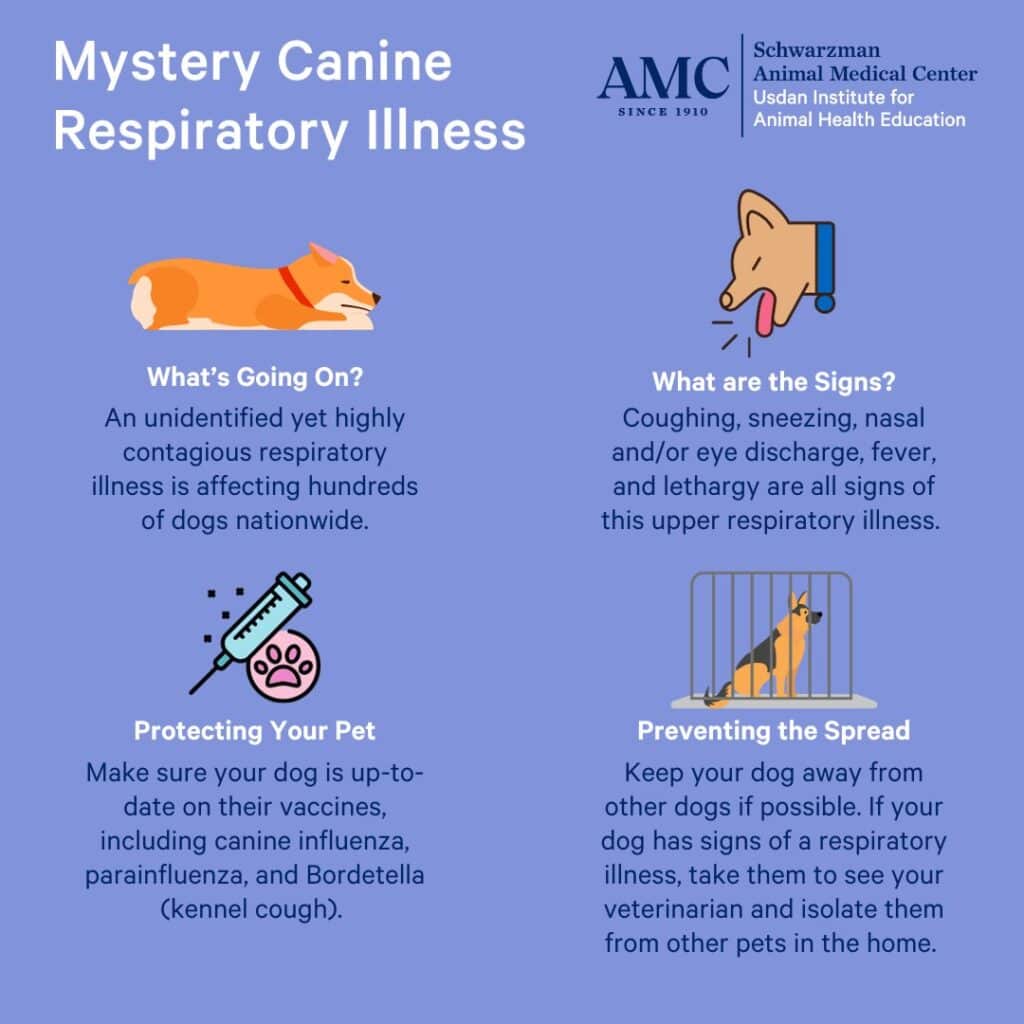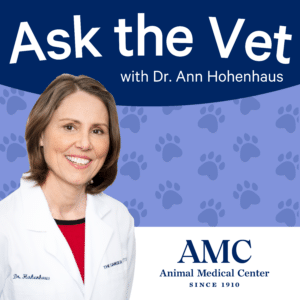Lately, there have been a surprising number of stories in the news about respiratory illnesses in dogs. First, there is the mystery respiratory illness that has been dominating the veterinary news cycle. Now thereís a shelter outbreak of respiratory...
Lately, there have been a surprising number of stories in the news about respiratory illnesses in dogs. First, there is the mystery respiratory illness that has been dominating the veterinary news cycle. Now thereís a shelter outbreak of respiratory disease in San Diego. And we canít forget about the common and persistent Canine Infectious Respiratory Disease Complex, also known as kennel cough. Iíll summarize the latest in canine respiratory illnesses in todayís blogpost.
The New, Mystery Canine Respiratory Illness

The epicenter of this respiratory illness seems to be Portland, Oregon south through the Willamette Valley. While the agent causing the illness is a mystery, the clinical signs exhibited by dogs are classic respiratory signs. Dogs with the mystery illness cough, have runny noses and goopy eyes. Many have a fever. If the infection progresses to pneumonia, dogs may be extremely ill, have an increased respiratory rate and some dogs succumb to this illness. Since administration of antibiotics doesnít seem to resolve the illness, veterinarians suspect that itís a viral disease. So far, none of the typical viruses, like influenza or parainfluenza, have been identified in sick dogs.
For the latest developments on this evolving situation, sign-up for our pet health newsletter and follow us on Facebook, Instagram, and Twitter.
San Diego Shelter Pauses Intake Due to Known Respiratory Illnesses in Dogs
Fortunately, the cause of the San Diego shelter outbreak is well known to veterinarians: a bacterium called Streptococcus equi zooepidemicus, or ďStrep zoo.Ē Strep zoo rapidly spreads between dogs in close contact or on inanimate objects like kennels, shoes and bowls. Shelters are the perfect environment for Strep zoo to quickly infect many dogs.
The San Diego shelter also identified a Mycoplasma infection in the shelter dogs. Mycoplasmas are a unique type of bacteria that lacks a cell wall. Since antibiotics like penicillin attack the bacterial cell wall, mycoplasma infections are treated with antibiotics that work though a different mechanism. To prevent more dogs from becoming infected, the shelter is limiting intakes.
Canine Infectious Respiratory Disease Complex, or Kennel Cough
Canine infectious respiratory disease complex is just a fancy name for kennel cough. Kennel cough is a highly contagious infection with both bacterial and viral causes. Streptococcus equi zoodepidemicus and Mycoplasma, discussed above, are just two of the organisms that cause kennel cough. Other kennel cough causes include Bordetella, parainfluenza, influenza, canine respiratory coronavirus and canine pneumoviurus. Kennel cough is incredibly common. Veterinary practices like AMC diagnose kennel cough nearly every day. If your dog is coughing and has a fever, the underlying cause is most likely one of these organisms listed above and not a previously unknown disease.
Preventing Respiratory Illness in Your Dog
To protect your dog from respiratory illnesses this holiday season, here are six helpful tips.
Keep your dogís vaccinations for Bordetella, parainfluenza and canine influenza up to date. Avoid contact with unfamiliar dogs and dogs who appear to be ill. Steer clear of the dog park, especially if respiratory illnesses have been diagnosed in your community. Consider alternatives to the boarding kennel for your dog during the holiday travel season. Learn to count your dogís respiratory rate. A rate greater than 40 breaths per minute indicate the need to go to the emergency room. See your veterinarian if your dog develops signs of a respiratory illness.Want to Learn More About Respiratory Illnesses in Dogs?
Join us on Zoom on†Thursday, December 7th at 6PM ET†as AMCís Dr. Ann Hohenhaus leads an informative session for pet owners on the unidentified canine respiratory illness. Tune in for the latest developments and learn steps you can take to protect your canine companion.












